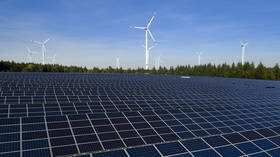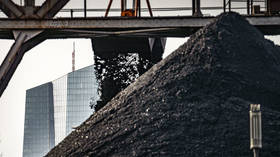Germany shuts down last nuclear reactors
Berlin dismissed last-minute calls for a delay ahead of a complete nuclear phase-out scheduled on Saturday
Germany’s government has confirmed plans to go through with the shutdown of the country’s last remaining nuclear power plants this weekend, cutting off a key source of energy despite the loss of Russian natural gas amid the Ukraine crisis.
The last three reactors – Emsland in northwest Germany and Isar 2 and Neckarwestheim 2 in the south – will be idled for good on Saturday, completing a phaseout of nuclear power that began in 2002 and was accelerated after Japan’s Fukushima disaster in 2011. The shutdown order had been extended from the end of last year to April 15 amid concerns over a potential winter energy crisis, but Chancellor Olaf Scholz ruled out seeking another extension.
Germany’s nuclear power industry accounted for about 30% of the country’s power supplies in the late 1990s. With all but three reactors closed, the plants generated 6% of German electricity last year.
Fossil fuels are filling the void. With Russian gas imports cut off, output from coal-fired plants rose 8% last year, accounting for over 31% of power supplies. Germany also is ramping up imports of liquefied natural gas (LNG), including cargoes from the US. The country plans to boost its LNG import capacity more than fivefold by 2030, to nearly 71 million tons annually.
Scholz has warned that Germany will need to install four to five new wind turbines each day over the next few years to meet its power-supply needs. That would be about triple last year’s pace of 1.5 per day. Renewable energy sources currently account for 46% of power supplies.
While environmentalists have pressed to keep Scholz’s government on course with the nuclear phaseout, most Germans oppose the move. A poll released on Friday by public broadcaster ARD showed that 59% of Germans believe the government’s decision to abandon atomic power was wrong, while 34% agree with the policy. Two-thirds of respondents who want to keep the reactors running said they’re concerned that energy prices will rise when nuclear power supplies are lost.
“Politicians need to adjust to changed circumstances, and I accuse the government of not doing that at all,” opposition party lawmaker Albert Stegemann told the Associated Press.
“The nuclear phase-out by April 15, that’s this Saturday, is a done deal,” the chancellor’s spokesperson said earlier this week. Environment Minister Steffi Lemke defended the decision, saying the safety risks of nuclear power “can’t be controlled, even in a high-tech country like Germany.”
You can share this story on social media:









Comments are closed.